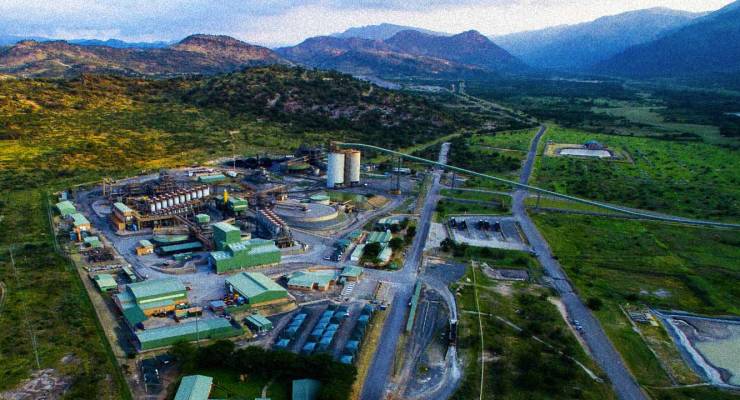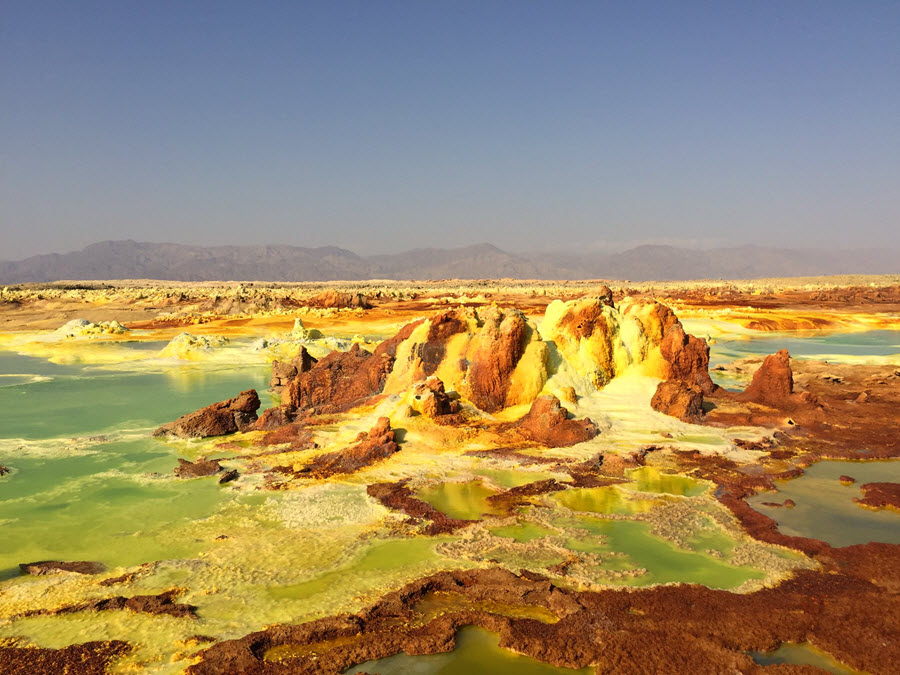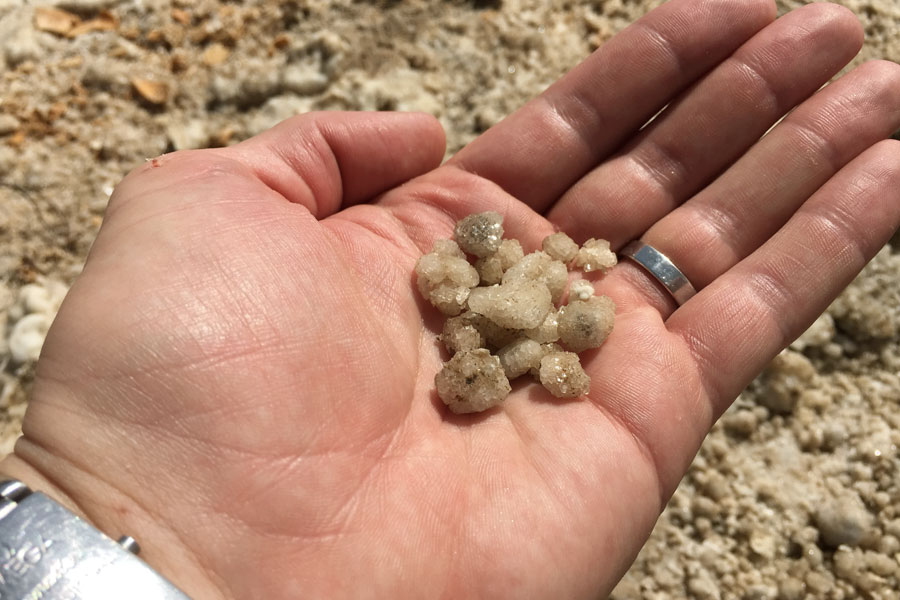
Australian miners pride themselves as being some of the first “on ground” in every African minerals rush. Whether it’s the Chinese-driven copper rush of the 2000s in Zambia or the latest smartphone-driven cobalt rush to hit the Congo, chances are, if there was money to be made, Australians were there, ready to dig.
The same is true today, and as some in the industry told Inq, there are very few places that are considered off limits.
But across Africa, wrote David Landes in The Wealth Poverty of Nations, “the clocks go backward as well as forward”. That might be useful advice for the vast cavalcade of miners digging deep to exploit the lucrative resources that lie beneath the continent’s more dangerous regions, where despotic regimes, desperate for deals, are prepared to put profits before their own people.
Eritrea: the perils of mining in the ‘North Korea of Africa’
Slavery, rape, murder, torture. These are some of the words used by the United Nations in 2016 to describe life inside one of the world’s most repressive states, Eritrea, in the Horn of Africa. Often referred to as the “North Korea of Africa”, the country has never held an election since its independence in 1993, and has no free media or independent judiciary. More chillingly, the report by the UN accused its government of committing crimes against its people, which include forcing them to work indefinitely as part of a brutal military conscription program the UN says has enslaved up to 400,000 people.
But there’s one Australian company that instead sees Eritrea as the land of opportunity, describing a proposed mine in its Danakil valley — one of the hottest, driest and lowest places on the planet — as one of the most “exciting projects in the world”. As its CEO Niels Wage said in a promotional video: “To work with the Eritrean people, with the current workforce, that’s really significant.”
The company is Danakali, named after the valley it seeks to mine, the Danakil Depression. Like many Australian miners in Africa, Danakali is registered to a Perth address and listed on the ASX.
But the Danakil Depression could not be more removed from the developed suburbs of Western Australia. It’s scorched earth and lava lakes make it look more like another planet.

It’s the endless salt lakes that have attracted Danakali to Eritrea, where it plans to mine the valuable mineral potash. Potash, the main ingredient in fertiliser, is in high demand thanks to rising global populations and the threat of food insecurity. “This will be a significant game changer and it’s great to be involved and work with the team and really build this company,” spruiked Wage in his video.
But Eritrea’s bleak human rights record, particularly its system of compulsory military service, which has been likened by both the UN and European Parliament to mass enslavement, has led many observers to express their concern about what exactly an Australian company is doing building a mine there. “[They’re] doing business with a repressive government run by the military,” Felix Horne, a senior Ethiopia and Eritrea researcher for Human Rights Watch, told Inq. “How is Danakali going to do it? I just don’t see how it’s possible without military conscripts. There’s virtually nobody else unless they import labour which isn’t likely to be allowed by the Eritrea government.”
Australia’s reputation for being one of the first miners on the ground in emerging African nations is leading many like Horne to question the ethics of its business dealings in repressive states. And its decision to shake hands with the Eritrean government over the 50-50 owned mine in 2017 is all the more questionable given Canada, another prolific miner of African minerals, ran into trouble in 2014 when three Eritrean refugees filed a lawsuit against Vancouver-based Nevsun, accusing them of being complicit in the use of forced labour at its Bisha mine. They claim they were forced to work long hours and lived in constant fear of threats of torture and intimidation. Nevsun rejected the allegations as “unfounded” and declared that the Bisha Mine “has adhered at all times to international standards of governance, workplace conditions, and health and safety”. The court case continues.
A Danakali spokesperson told Inq that it had been operating in Eritrea since 2009 and has found the country to be safe, stable and development-focused with “no evidence of corruption”. “We are keen for Danakali to be a force for good in being a major contributor to the economy, a significant and caring employer and a safe and considerate operator – thereby setting an example for business more generally in the country,” he said. He said the company was committed to ensuring its mine “neither employs nor supports forced, bonded, indentured or slave labour, including conscripted labour, or any form of human trafficking and child labour in any part of the value chain”. He said the mine and its contractors will comply with employment conditions legislated under the Eritrean labour laws and “wages rates will be in line with other mining companies’ rates in Eritrea”.
But Horne says this would mean trusting questionable military discharge letters. He also said that in his opinion it would be almost impossible to stop the government using military conscripts or forced labour to pave the 200 kilometres of desert road needed to link the mine to the port. “Danakali need to ensure that all employees, including those of subcontractors, are either exempted or have been released from national service. But then who will be available to work in the mine? That is Danakali’s challenge.”

The Eritrean refugees fighting Nevsun in court paint a picture of Eritrea as a place where conscripts are forced to work 72-hour weeks in extremely harsh conditions with inadequate food and low pay. This picture has been backed up by the 2016 UN report, which found the Eritrean government used murder, forced disappearances, rape and torture “to instil fear in, deter opposition from and ultimately to control the Eritrean civilian population”. The report was authored by Australian diplomat Mike Smith, who concluded there was a “rule of law vacuum” in the country, resulting in a “climate of impunity for crimes against humanity to be perpetrated over a quarter of a century”. He declined to speak to Inq.
Zimbabwe: the failed state that’s ‘open for business’
When Robert Mugabe was unexpectedly toppled by his military-backed vice-president in 2017, the country faced the same problem as others that threw off decades of oppression under a single figurehead. Many of the elites behind the scenes stayed the same. The same men who had overseen Zimbabwe’s collapse into failed state — the mass-murder of its citizens, the hyperinflation of its currency, the outbreak of diseases like cholera and the profligate abuse of natural resources — were handed ministerial roles in the new government, so long as they had backed the right horse in the tussle between Mugabe and his replacement, Emmerson Mnangagwa.
Among them was Perence Shiri, the former commander of the infamous Fifth Brigade, which massacred about 20,000 people in Matabeleland in the mid-’80s. He also oversaw a campaign of beatings and killings in Manicaland, intimidating voters into supporting Robert Mugabe in the lead up to the 2008 presidential election, and allegedly, the brutal murders of scores of illegal diamond miners later that year. He is now Zimbabwe’s Agriculture, Water and Rural Settlement Minister.
But as far as Australia and other countries are concerned, the Mnangagwa administration has one large advantage over its predecessor — it has proclaimed itself to be “open for business.” The opening-up of the economy has seen a huge influx of Australian miners over the past two years: Invictus, Latitude, Prospect, Six Sigma and, biggest of all, Zimplats, have flooded into Zimbabwe to take advantage of its rich reserves of platinum, lithium, oil and gas. Meanwhile, the widespread optimism that accompanied the fall of Mugabe has dissolved, as the army continues to kill protesters, and the financial gains of the opened-up economy fail to trickle down.
“The Mnangagwa administration, a self-styled ‘new dispensation’, is struggling to steer the economy in any meaningful direction and Zimbabweans have increasingly become impatient and restless,” Dr. Edson Ziso, Visiting Research Fellow at the University of Adelaide told Inq. Zimbabwe’s mining sector, he said, had “increasingly become politicised, securitised and militarised” since the coup. The government is desperately seeking legitimacy from resources revenues to deflect attention from their own human rights abuses. Finance Minister Mthuli Ncube boasted of the $8 billion that had flowed into Zimbabwe through mining in 2018 alone.
“The Zimbabwe open-for-business agenda is creating serious risks of giving overgenerous tax incentives to attract foreign direct investments,” Mukasiri Sibanda, economic governance officer at the Zimbabwe Environmental Law Association told Inq. “The danger is the serious disconnect between mining and mobilisation of domestic resources to finance development. Section 13 (4) of the Constitution compels the state to put mechanisms to ensure communities benefit from resources in their areas. However, government have removed legal backing for community share ownership trusts for all minerals outside platinum and diamonds.”
And then, two weeks ago, the Zimbabwe government passed a law effectively outlawing strikes. “Australian companies operate in an environment where labour rights are increasingly deteriorating in Zimbabwe,” Ziso said. “Foreign owned mining companies in Zimbabwe are earning massive profits and the temptation to trample labour rights in pursuit of super-profits has never been greater as the government is itself at the forefront of restricting labour rights.”
Community members in Mhondoro Ngezi told Inq that the blasting from the nearby Zimplats operations sent shuddering cracks through around 50 houses across five villages in the area.

Zimplats’ 2018 report states that “the operating subsidiary … routinely brings in independent experts to carry out air blast and ground vibration surveys. Results confirm that the Zimplats mining operations are not the source of the problem”. They say the results are shared transparently with both the community leaders and Mhondoro Ngezi Rural District Council.
Locals say the company and the council are “impervious” to their complaints.
Generally, Australian companies in Zimbabwe have a better reputation than their Chinese and British counterparts, but the lack of transparency means locals have no confidence their complaints are taken seriously. “It is difficult because mining agreements are not publicly disclosed,” Sibanda said. “Zimbabwe has high levels of corruption, ranked one of the most corrupt countries in the world by Transparency International’s Corruption Perception Index. So, there are huge risks that corrupt public officials and unscrupulous investors can get into bed resulting in bad agreement which stifles national development opportunities.”
The story was similar to those we heard in Xolobeni, Limpopo, and Lumwana. Regardless of the apparent billions raised by investment from foreign companies, Zimbabweans are on average poorer today than they were at independence in 1980. “Nearly four out of every five Zimbabweans just about survives in absolute poverty,” wrote the country’s former finance minister Tendai Biti last month. “On average, whole communities today live on less than 35 cents per person per day.”
Inq approached Zimplats for comment.









I’m sure the justifications are flowing freely, like: ‘If we don’t, someone else will’, or ‘We’re helping the people they need investment’ or perhaps ‘Hey, business is no place for politics’. But, at the end of the day the sad truth remains that Africa and Africans continue to suffer at the hands of outside interests and their own corrupt and brutal countrymen and women. Those living in the ‘lucky’ countries of the world continue to fear and push back against the brave souls who flee repression, corruption and greed; all the while happily investing in the latest stock market sensation, without a passing thought for who is being harmed by their money and why people from those very countries keep turning up bedraggled or dead on their shores.
Morals go out of the window when it comes to extracting minerals or oil – as demonstrated in Timor-Leste
How can Australian companies do business with dictators? There is never an excuse. If you know, you walk away. And retain your soul. If you have no soul, no moral compass, you find a ‘reason’ and do business.
‘Regardless of the apparent billions raised by investment from foreign companies, Zimbabweans are on average poorer today than they were at independence in 1980. ‘
Says it all really.
Why go to Africa? Look to PNG for an entirely relevant and typical example of the brutal and evil impact of Big Mining in the Third World today, helped by the Australian government’s support and encouragement for corruption.
PNG LNG, the massive ExxonMobil-led Liquid Natural Gas project in Papua New Guinea backed by a $500m Australian government loan that commenced takeaways in 2014, should be repudiated by a competent PNG government.
Since then, the PNG economy had grown by 10% – far less than the near-doubling of GDP predicted in Exxon-commissioned modelling produced in 2008 by the strategy consultants, Acil Tasman (now Acil Allen).
That same modelling – which has been removed from the ExxonMobil website – predicted the project would help drive significant growth in other areas of the economy, but the reality has been far less pleasant. The report found:
—–instead of household income increasing by a predicted 85%, it fell by 6%.
—–instead of employment increasing by 42%, it fell by 27%
—–instead of government expenditure to support education, health, law and order, and infrastructure increasing by an estimated 85%, it fell by 32%
—–instead of imports increasing by a predicted 58%, they fell 73%
—–collected about 500,000 kina (AU$203,000) when it should have collected 1.4 billion kina (AU$567.8m) in revenue.
Not only has it failed to deliver to a remarkable degree on a promised economic boom for the country according to research group Jubilee Australia, it is so bad that the PNG people would have been better off if the project had never happened. It is simply a striking example of neo-colonial looting of the Third World, driven by Australia’s ruling clique as part of its eagerness to assist such looting both locally and in the region.
The pattern we see across the world. Spin, lies and greed. Also look at what has happened on Aboriginal land- the McArthur River is an example of the worst practice. Burning mullock heaps, a diverted river, contaminated seafood, environmental destruction. Xtrata – the first mine owners paid NO TAX (except payroll tax which they could not avoid) for the first ten years. NADA. ZILCH. NOTHING. We the tax payer, funded their infrastructure to the tune of millions. Did we get our money back? When the environmental damage is factored in, the answer is no, we did not.
The wonderful Malarndirri McCarthy crossed the floor the NT Parliament to vote against the expansion of this monstrosity to try and protect the country of her ancestors.
The death of miles of mangroves on the coast, down wind from the burning mullock heaps has never been properly accounted for.